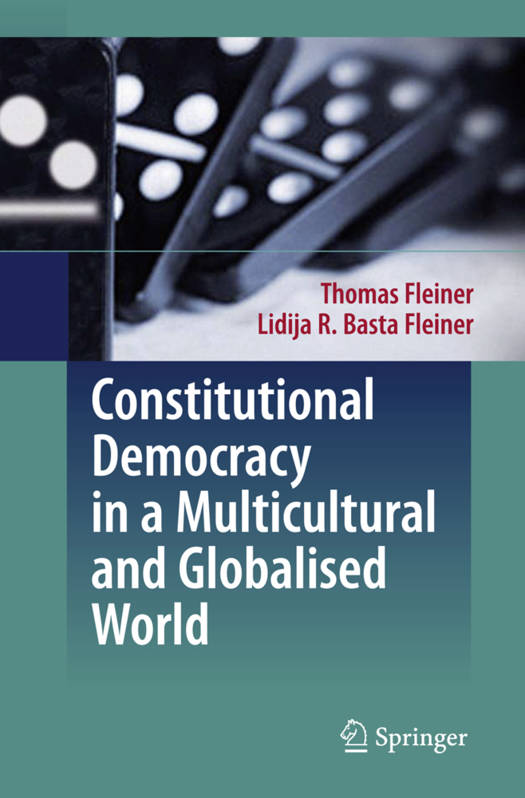
Door een staking bij bpost kan je online bestelling op dit moment iets langer onderweg zijn dan voorzien. Dringend iets nodig? Onze winkels ontvangen jou met open armen!
- Afhalen na 1 uur in een winkel met voorraad
- Gratis thuislevering in België vanaf € 30
- Ruim aanbod met 7 miljoen producten
Door een staking bij bpost kan je online bestelling op dit moment iets langer onderweg zijn dan voorzien. Dringend iets nodig? Onze winkels ontvangen jou met open armen!
- Afhalen na 1 uur in een winkel met voorraad
- Gratis thuislevering in België vanaf € 30
- Ruim aanbod met 7 miljoen producten
Zoeken
Constitutional Democracy in a Multicultural and Globalised World
Thomas Fleiner, Lidija Basta Fleiner
Paperback | Engels
€ 126,95
+ 253 punten
Uitvoering
Omschrijving
After World War II, states transformed into 'collective fortresses' in order to protect competing ideological systems. The debate on post-modern statehood heavily built on ideological disputes between liberalism and communism, over the nature of the economic and social system, and the state and government that could sustain such a system. What is an 'ideologically acceptable' state-concept; which tasks and fu- tions should the state fulfil, and how to legitimate not only democratic, but also authoritarian and even totalitarian regimes? These questions were at the very centre of state theory. However, after the fall of communism in Europe and the former Soviet Union, the discourse of state and government scholarship radically changed. The need for a profound shift in the state paradigm was emerging. The time after 1989 seemed to proclaim that the nation-state had lost its raison d'être as an island of undisputed and unlimited sovereignty. A globalised world order broke open the 'fortress state' that developed within the tradition of European constitutionalism. Given the simultaneous structural changes to the nation-state's foundations, socio-economic and political reforms going hand in hand with new constitutional designs, the 'state in transition' started paving the way towards a new state paradigm, and not only with regard to the states in the process of de- cratic transformation from socialist into liberal constitutional democracies.
Specificaties
Betrokkenen
- Auteur(s):
- Uitgeverij:
Inhoud
- Aantal bladzijden:
- 670
- Taal:
- Engels
Eigenschappen
- Productcode (EAN):
- 9783642095283
- Verschijningsdatum:
- 19/10/2010
- Uitvoering:
- Paperback
- Formaat:
- Trade paperback (VS)
- Afmetingen:
- 156 mm x 234 mm
- Gewicht:
- 961 g

Alleen bij Standaard Boekhandel
+ 253 punten op je klantenkaart van Standaard Boekhandel
Beoordelingen
We publiceren alleen reviews die voldoen aan de voorwaarden voor reviews. Bekijk onze voorwaarden voor reviews.











